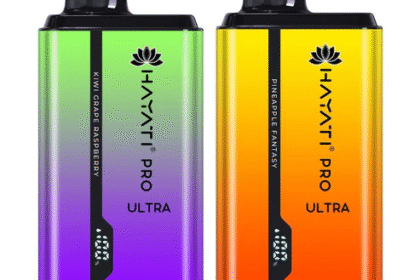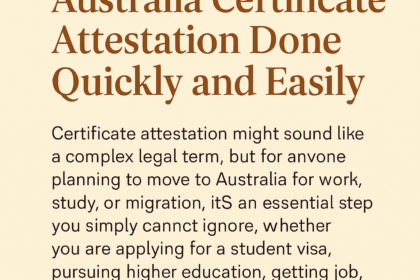Are you thinking about buying a park home for sale in Scotland? You’re not alone. More people are choosing park homes for their peaceful settings, affordable prices, and low maintenance needs. But before you sign anything, there are some key facts you should know.
Buying a park home Scotland isn’t the same as buying a traditional house. From ownership rules to ongoing costs, you’ll need to understand the details. This guide breaks down the top seven things to consider. It’ll help you avoid surprises and make the right choice for your future.
1. You Don’t Own the Land
One of the biggest differences with park homes is ownership. When you buy a park home for sale in Scotland, you’re buying the home—not the land it sits on.
How Does It Work?
The land is usually owned by a private park operator. You’ll pay them a monthly pitch fee to keep your home there. This fee covers ground rent and some site services. Make sure you get a written agreement. It should clearly outline your rights and obligations.
This setup means you’ll need to read every contract carefully. Ask questions before you commit. Check how long you can stay on the site and what happens if the park changes hands.
2. Not All Parks Are Residential Year-Round
Before you get too attached to a park, check its license. Some are only licensed for holiday use.
Why This Matters
A holiday park can’t be your full-time home. You might have to vacate during parts of the year. On the other hand, a residential park allows year-round living and can legally be your permanent address.
Make sure the park has a full residential license. Don’t just take someone’s word for it—ask for proof. If it’s not residential, think twice before buying.
3. Legal Protections Vary
Scotland has different rules than England or Wales when it comes to park homes. In some cases, you may not have the same legal protections as other homeowners.
What to Watch For
Make sure you understand your legal position. Ask if the Mobile Homes Act applies to the park. Some parks may have voluntary agreements in place, but those don’t offer the same rights. If you’re not sure, consult a solicitor who understands park home law.
Also, check if you’re responsible for repairs or if the park helps with site maintenance. Know where your responsibilities begin and end.
4. Costs Go Beyond the Purchase Price
Buying the home is just the start. You’ll have ongoing costs to consider.
Typical Costs Include:
- Monthly pitch fees
- Utility bills (often metered and billed through the site)
- Council tax (usually Band A)
- Maintenance and insurance
- Site service charges
Ask for a full breakdown of monthly costs before you buy. These charges can add up fast. Some parks have annual reviews of pitch fees, so find out how often prices change.
5. Resale Value May Drop
Unlike traditional houses, park homes in Scotland usually go down in value over time. This is important if you plan to sell in the future.
Why Do They Depreciate?
Park homes are seen more like vehicles or mobile assets than fixed property. They don’t usually appreciate like brick-and-mortar houses. Older units may be harder to sell, especially if the site is less popular.
Make sure you’re happy with the location and setup for the long haul. If resale is important to you, consider newer models or well-known parks that hold better value.
6. Always Use a Professional Surveyor
Even though park homes are prefab structures, they still need inspection. Don’t skip a survey just to save money.
What Can a Survey Uncover?
A qualified surveyor can find hidden issues. These might include damp, poor insulation, or outdated wiring. Fixing these later can be costly. It’s also important to confirm that the home complies with current safety standards.
Choose a surveyor with experience in park homes. Their advice can help you negotiate the price or decide to walk away if needed.
7. Choose the Right Park Operator
A park home is more than a structure. You’ll also be dealing with the park operator for many years.
What Makes a Good Operator?
Look for parks with clear rules, responsive management, and well-kept grounds. Read online reviews and ask current residents about their experiences. Poor management can lead to disputes, rising fees, and stress.
Ask these questions:
- How long has the operator owned the park?
- Are they part of a professional trade body?
- How do they handle disputes or complaints?
If the answers aren’t clear, move on to another option.
Final Thoughts
Buying a park home for sale in Scotland can be a smart move—but only if you understand what you’re getting into. These homes offer comfort, savings, and a strong community feel. Still, there are risks if you don’t do your homework.
Take your time. Visit several parks. Talk to residents. Review all paperwork carefully. And most importantly, know that owning a park home Scotland is a unique kind of homeownership—one that works best when you plan ahead.
Quick Checklist Before You Buy:
- Confirm it’s a full residential park
- Get legal advice on the purchase agreement
- Ask for a full cost breakdown
- Hire a professional surveyor
- Meet the park operator and ask questions
- Speak to current residents
- Check how long you can stay each year
By following these tips, you’ll avoid costly mistakes and feel more confident in your purchase.
Thinking about a park home? Make sure it fits your lifestyle, your budget, and your long-term goals. Scotland has many great park home options—just be sure you know the facts before you commit.


